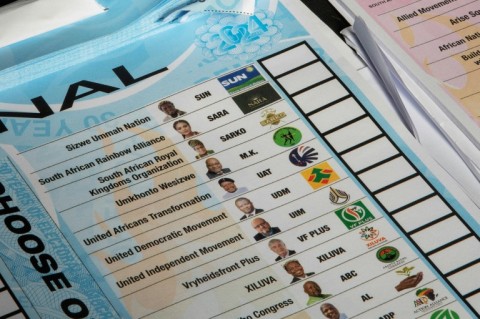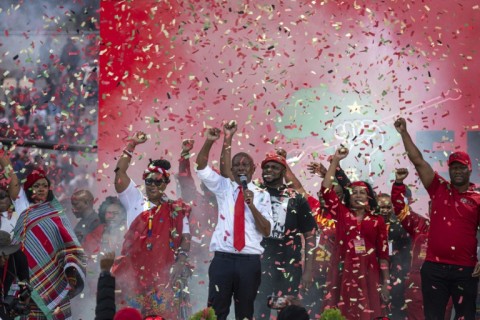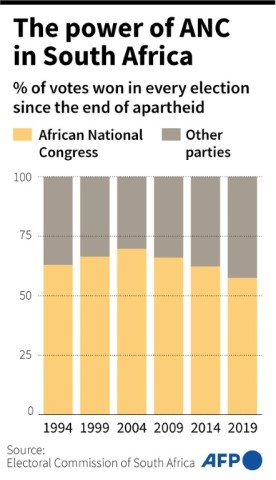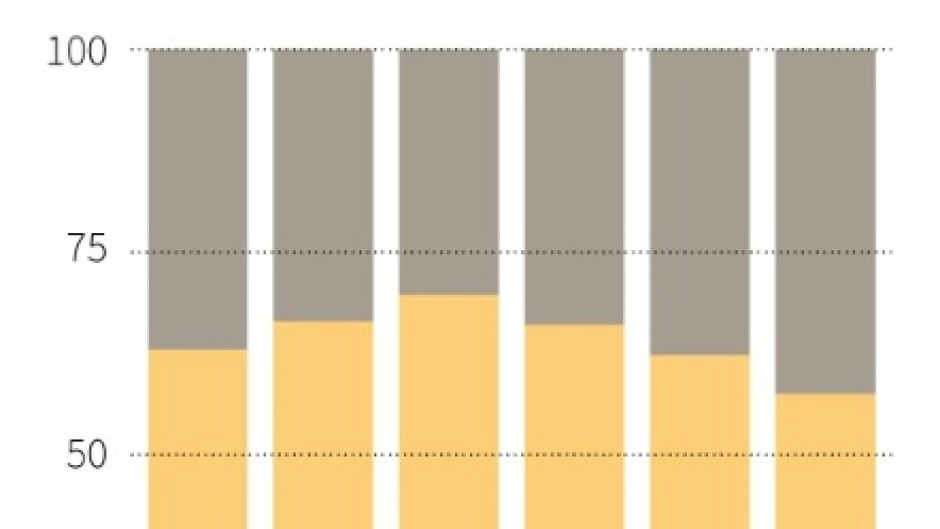JOHANNESBURG - South Africans are braced for a tight general election that may loosen the ANC's 30-year hold on power -- with many voters fed up with unemployment, crime and corruption.
For a second day, 1.6 million "special voters" including the elderly, essential workers, police and prisoners, were allowed to cast their ballots early.
The rest of South Africa's 27-million-strong registered electorate will be called on Wednesday to elect provincial legislatures and a new national parliament. The latter then chooses the president.
For the first time since the advent of democracy, the African National Congress is at risk of losing its outright majority and could be forced to negotiate a coalition.
"This is certainly South Africa's most unpredictable election since 1994," political analyst Daniel Silke said.
"It reflects the broad-based economic decline that the country has been languishing under now for the better part of the last decade or so."
Under the leadership of the late Nelson Mandela, the ANC won freedom for black South Africans after decades of apartheid. It then helped build a strong democracy and lifted millions out of poverty by creating a broad social welfare system.
But many in the country of 62 million now blame it for overseeing massive graft and mismanaging the economy.
"I will not vote for ANC but I don't know who I will vote for," said Nomsa Cele, 55, a hawker selling hats and jewellery on the quiet beachfront of Durban, the largest city in the battleground province KwaZulu-Natal, whose streets are plastered with electoral posters.

In the bustling streets of Umlazi township, one of the biggest in KwaZulu-Natal, rival tents for the ANC and the radical left opposition Economic Freedom Fighters (EFF) were pitched outside Umlazi Commercial High School.
Busisiwe Mthethwa told AFP her ballot was secret but said with a slight smile she would vote for the "red party", implying she was leaning towards the EFF.
The 62-year-old said she had not cast her vote in 2019 because "she had lost hope in the ruling party's corruption tactics" but believed "it's now time to make my vote count and kick them out."
An Afrobarometer survey last week showed that unemployment, currently at 32.9 percent, rolling blackouts, corruption and poverty were the most urgent problems South Africans want to be addressed.
'A weaker party'
President Cyril Ramaphosa, who is seeking a second term, defended his record in a speech to the nation on Sunday, citing progress in fighting graft and fixing gaps in electricity production among other successes.
"We have placed South Africa on a new trajectory of recovery and laid a strong foundation for future growth," the 71-year-old said.
"We cannot afford to turn back. There is more work to be done."

He has also promised to usher in universal credit and push ahead with plans to provide health coverage.
But polls suggest the ANC could win as little as 40 percent of the vote, down from 57 percent in 2019.
Under South Africa's post-apartheid constitution, MPs are elected on a party list system, and the executive president is chosen from among their number by the Cape Town-based parliament.
If the ANC has fewer than 201 seats, Ramaphosa would have to negotiate with opposition parties and independent MPs to secure a majority and return to government headquarters in Pretoria.
It could face stark choices. On the right, it is beset by the Democratic Alliance (DA), which has vowed to "Rescue South Africa" by rolling back the ANC's race-based economic empowerment programmes and to boost growth through privatisation and deregulation.
On the left, it is bleeding support to former president Jacob Zuma's uMkhonto weSizwe (MK) and Julius Malema's EFF, which favour radical reforms like land redistribution and the nationalisation of key economic sectors.

Were the party to come close to 50 percent, however, it could also strike a potentially easier deal with some of the dozens of smaller groups on the ballot.
"The choosing of its partners will ultimately set the scene for South Africa's future course," said Silke.
"But the ANC will be a weaker party... And indeed, the future of President Ramaphosa could also very well be in doubt as a result of a poor ANC performance."

